Gordon G. Chang's Blog, page 10
July 31, 2015
An Erosion of Confidence in China
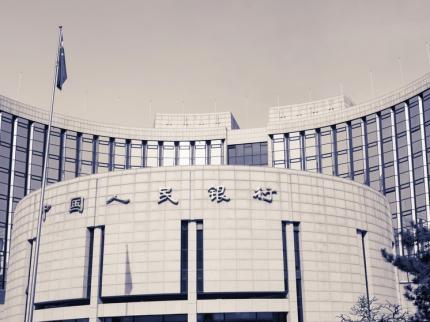
“There is no Alan Greenspan or Mario Draghi in China,” said Peng Junming of Beijing-based Empire Capital Management, referring to the former chairman of the Federal Reserve and the current president of the European Central Bank. Peng, a former official of the People’s Bank of China, highlighted one weakness of his country’s financial system. When stocks started to slide in June, no top official appeared in front of the cameras to reassure nervous investors.
The Wall Street Journal thinks Beijing’s silence is significant. “The rescue effort is missing one feature found in markets elsewhere: a senior figure stepping forward to stop the panic,” the paper noted on Tuesday.
There are, in fact, leaders who the Chinese people see with some regularity, namely the general secretary of the Communist Party, Xi Jinping, and the premier of the central government, Li Keqiang. Neither Xi nor Li, however, has gone on the record over the stock rout.
Is that the problem? Could a Greenspan-like figure help inspire confidence in Beijing’s management of share markets? Perhaps, but the fundamental problem is less the presence of a spokesperson than the nature of the Chinese system itself.
The Journal itself points to a lack of institutionalization in China. In fact, there are no independent Chinese institutions. The People’s Bank of China, always referred to as the country’s central bank, has no independence. It reports to the State Council, and in reality it carries out policy made by the Communist Party’s Leading Group on Finance and the Economy.
Zhou Xiaochuan, the respected governor of the PBOC, merely executes the non-transparent Leading Group’s decisions. For instance, for many months he has been carrying out loose-money policies that he consistently opposed in the past. And in recent weeks he also implemented the universally criticized stock rescue plan, which he apparently argued against. It does not matter that Zhou’s cautious views have generally been proven right; month after month he has been forced to put in place ill-considered stop-gap measures mandated by officials at the top of the Chinese political system.
The China Securities Regulatory Commission, like the central bank, also serves as a front for Party leadership. There have been rumors for weeks that its chairman, Xiao Gang, will be removed for failing to prevent the stock slide that began in mid-June.
In one sense, his removal would be an injustice. The plunge in prices was the inevitable result of the Party’s ploy a year ago to spike a steep rise in stocks. The idea was that an increase in share values would stir consumption—the so-called “wealth effect”—and permit enterprises to issue stock so that they could pay off heavy debt loads.
The plan worked for a while. Share prices as measured by the Shanghai Composite rose more than 150 percent from the beginning of July 2014 to the middle of this June. But the reckless tactic was bound to end in a collapse because the rally was not supported by either an increase in GDP growth or a surge in corporate profits. Stocks went up almost entirely because the Party exhorted the Chinese people to buy equities, and they fell less because of Mr. Xiao than because the bubble, inevitably, had to burst.
The Communist Party, despite its November 2013 commitment to let markets play a “decisive” role, has made it clear it will set equity prices. Its stock rescue plan, rolled out in announcements made July 4th and July 5th, was not only interventionist but dictatorial, even establishing a price target for the Shanghai Composite with mandated buying and holding of stocks.
The plan initially succeeded to arrest the slide, but the sharp and unanticipated fall on July 27th—the Shanghai Composite lost 8.5 percent that day in the second-largest drop in its history—shows how jittery China’s investors remain despite repeated government assurances and intervention.
The Financial Times reports that Monday’s plunge was caused because investors did not believe the central government would stick with its market-support plan.
At this point, Beijing’s problem is that the Chinese people have lost confidence, and not just in the economy, but also in the Party and its capacity to run the country. Capital outflow, for instance, has reached levels unimaginable just a year ago. According to a recent estimate, about $800 billion has left China in the past 12 months. In contrast, a few years back money was flooding into China, hoping to take advantage of a rising renminbi and robust growth.
Moreover, study after study show that the Chinese want to live elsewhere. A stunning 47% of China’s wealthy plan to leave China in a half decade according to a Barclays survey released in September.
Ultimately, it’s not clear what caused the underlying shift in attitudes, but it looks as if the shift has finally affected stock prices. In these circumstances, it’s unlikely that any figure, whether a Zhou or Xiao or Xi or Li, can inspire the populace to buy or hold stocks.
Not even Greenspan or Draghi can help now.
OG Image: Asia PacificChina
Asia PacificChina
July 23, 2015
North Korea Rolls Back Economic Reform
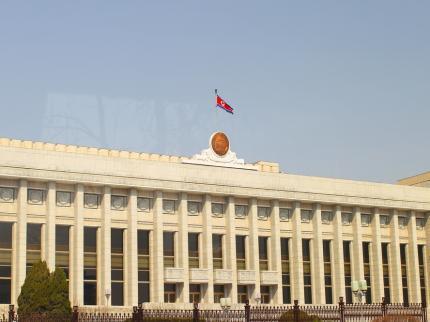
Kim Jong Un, the North Korean ruler, has reportedly ordered the removal of foreign products from his country’s markets. Said an official in North Hamgyong Province, “I was told by North Korea’s central authorities not to stop travelers from bringing in products from China through customs, but to strictly prohibit sales of the products in the market.”
The move at first looks like an attempt to target China, the source of many of the goods sold in the North, but Pyongyang could also be trying to implement a broad anti-reform agenda.
Kim, up to now, has been considered an economic reformer, authorizing a series of progressive measures since becoming the country’s supreme leader in December 2011. There have been, for instance, the “June 28th Instructions” from 2012, allowing farmers to keep up to 30 percent of harvested crops. “Working under the new system, North Korean farmers have produced more food than at any time in the last 25 years, bringing the country quite close to the goal of food self-sufficiency,” wrote Andrei Lankov, the famed Seoul-based Korea watcher, last month.
Then there are the even more important “May 30th Measures” adopted last year. Under this initiative, managers of selected state enterprises have far more latitude to run their operations according to business considerations. They can, for instance, sell products to maximize returns, no longer required to follow the dictates of meddlesome Pyongyang bureaucrats.
Just before Kim implemented these reforms and others, the country’s economy began to grow. On Friday, the Bank of Korea, the South Korean central bank, reported the North’s gross domestic product increased 1.0 percent last year, the fourth-straight year of expansion.
Moreover, analysts predict growth this year. GDP may not jump as much as Hyundai Research Institute predicts—a too-good-to-be-true 7.5 percent—but, apart from the effects of a severe drought, 2015 is shaping up to be a good year for the economy.
Growth, however, could stall if the regime backtracks on reform. Unfortunately, the May 30th Measures have not been extended to all enterprises, as many had hoped, and there is even talk that they have been rolled back. As Radio Free Asia notes, “Kim Jong Un’s instructions to drive out foreign-made goods” is essentially an order “eliminating private business because the government’s intention is to collect all money which is now circulating in the market.” As such, the prohibition looks more than just another anti-China measure.
Those trading in Chinese-made goods look like they will face restrictions in coming months, but they can be confident that the crackdown will not last long. Since the turn of the century, the Kim regime has been trying to take control of rural markets, where Chinese goods are offered for sale, but local traders have proved resilient and mostly impervious to government action.
This time should prove no different. For one thing, North Korean factories cannot replace all the Chinese goods in the stalls in rural areas, certainly not at the same low cost.
More important, traders there have become accustomed to the free flow of goods, and for them there is no going back to a centrally directed system. Reform, at least over the long term, is difficult to reverse in command economies where hardy citizens learn the power of money and local officials become accustomed to bribes that give them a good reason to look the other way.
Kim can issue orders about what people may buy or sell, but North Koreans, driven by the desire to better their lot, will eventually ignore his demands.
OG Image: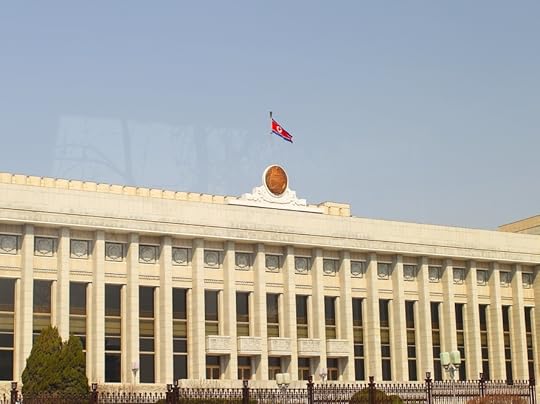 Asia PacificKoreaNorth KoreaKim Jong-un
Asia PacificKoreaNorth KoreaKim Jong-un
July 20, 2015
China’s Last ‘Immortal’ Dies
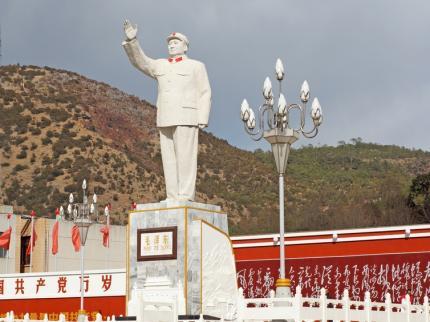
Wan Li died last week, according to his son. Bloomberg called him the last of the Chinese Communist Party’s “Eight Immortals,” revered post-revolution-era figures. He was 98.
Wan, a reformer, oversaw the breakup of agricultural collectives in eastern Anhui Province, paving the way for family farming. He retired in 1993 after serving as chairman of the National People’s Congress as well as Beijing party chief, railway minister, and vice premier. In 2004, Wan boldly called for liberalization of the party’s decisionmaking.
Perhaps Wan’s defining moment occurred during the Tiananmen uprising in 1989. He was in North America at the time and hurried back to China. Protesters in Tiananmen Square—as well as liberal officials—thought he might go to Beijing and call a meeting of the national legislature to oppose martial law, but he was diverted to Shanghai, where he remained quiet, possibly under guard by conservative party stalwarts.
Some do not count Wan as one of the Eight Immortals, but his passing nonetheless marks the end of an era. He was the last of the elders included in this exclusive grouping.
And why is his death significant? As the great Chinese historian Yu Ying-shih of Princeton University told me years ago, authoritarian regimes do not survive long after their first-generation leaders pass from the scene. He also remarked that these states have lifespans approximating those of humans. The Soviet Union, for instance, lasted seven decades.
The People’s Republic of China, by this measure, is getting close to its end. “New China,” as the regime calls itself, will celebrate its 66th birthday on October 1st.
Xi Jinping, the current ruler, is doing all he can to maintain the vigor of the Communist Party in its seventh decade of power. For Xi, survival is founded on retaining original principles and structures. He has, therefore, derided Gorbachev’s “historical nihilism.” In the Chinese context, Xi uses this term as code for current criticism of founder Mao Zedong and his policies.
Similarly, Xi has warned about the party turning its back on Leninism. He has no use for the dispersion of power that had occurred from Mao’s death in September 1976 until his own accession in November 2012. For Xi, the solution of continued institutional vitality lies in centralized control. During his time at the top of party, Xi has tried to move the organization from collective decisionmaking, the norm for decades, to one-man rule—his rule.
The concentration of authority has become a topic of conversation, especially after the party’s reaction this month to collapsing stock prices, which exposed political fault lines in senior leadership circles. The top-down tactics—massive government buying of stocks, prohibitions on sales, and forced purchases of stock, among other maneuvers—revealed Xi’s strong-state, interventionist mentality.
This new direction can also be seen in other facets of his economic policy—like the recombination of state enterprises back into monopolies and the increased reliance on state subsidies—and in his social policy—such as the unprecedented sweeping up of around 200 lawyers and activists nationwide in the last two weeks.
If the Communist Party crumbles under Comrade Jinping’s rule, it will be because he had been trying to exercise too much central power, not too little. “He is determined to avoid becoming the Mikhail Gorbachev of China, presiding over the party’s collapse,” wrote George Washington University’s David Shambaugh in March in “The Coming Chinese Crackup,” his widely discussed Wall Street Journal essay. “But instead of being the antithesis of Mr. Gorbachev, Mr. Xi may well wind up having the same effect. His despotism is severely stressing China’s system and society—and bringing it closer to a breaking point.”
So Xi’s attempts to reinvigorate the party have put the organization at risk. At a stage when most authoritarian systems devolve into weakness—when their first set of leaders and officials, like Wan Li, die—Xi Jinping is struggling to keep an aging regime alive with tactics borrowed from its first two decades of rule.
OG Image: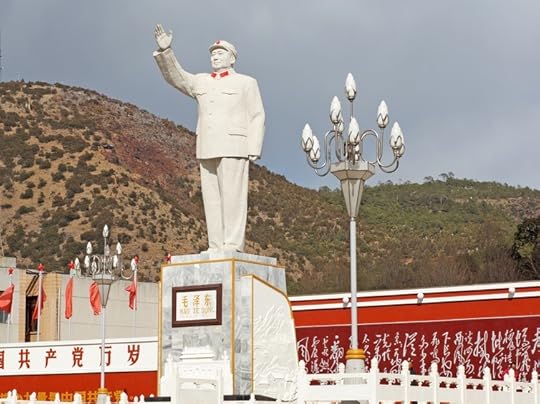 Asia PacificChina
Asia PacificChina
July 14, 2015
Rewriting Japan’s ‘Peace Constitution’
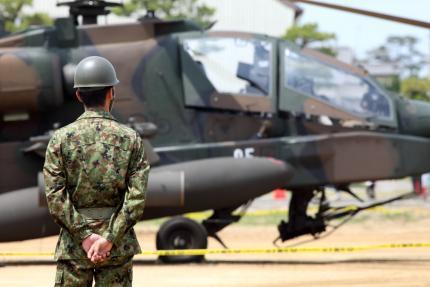
On Sunday, 40 soldiers from Japan’s Ground Self-Defense Force participated in the biennial Talisman Sabre exercise in northern Australia, jointly held by the US and Australia.
Japan’s involvement in the massive military event followed a flight on June 23rd of one of its P-3Cs over contested waters. The patrol plane flew about 100 kilometers west from the Philippine island of Palawan into the South China Sea. The craft came close to Reed Bank, claimed by both Manila and Beijing, and then headed back to base. On board, three Filipino military personnel accompanied the Japanese crew of 13.
Tokyo says the plane, taking part in a two-day exercise with the Philippines, was on a mock search-and-rescue mission to find a missing ship. Not everyone was convinced, however, as the flight path looked like a rehearsal for something else. “It’s likely we will see Japan doing joint surveillance and reconnaissance in the South China Sea in the coming years,” said Narushige Michishita of the National Graduate Institute for Policy Studies in Tokyo. “It is going to be with the US, Australia, the Philippines, and others.”
The June 23rd flight of the P-3C came six weeks after the first joint Japanese-Philippines naval exercise.
Japan has no territorial claims in the South China Sea, but the presence of Tokyo’s Self-Defense Force there is making Beijing, which thinks most of that body of water belongs to China, particularly unhappy. “We hope that the sides in question do not play up and create tensions on purpose, and that any interactions between those countries would actually contribute to regional peace and stability, rather than the opposite,” said Chinese Foreign Ministry spokesman Lu Kang, speaking to reporters about the exercise.
And Chinese generals are also upset. “The United States used to have military bases in Southeast Asia, like in the Philippines and even in Vietnam, and they have military cooperation with Singapore, so American military presence in the South China Sea is acceptable to China,” Chinese Major General Zhu Chenghu of China’s National Defense University said late last month. “As for the Japanese military presence, it is very difficult for the Chinese people and the Chinese government to accept it.”
Unhappy or not, China has no choice but to watch Tokyo extend its influence in the rim surrounding the South China Sea. Countries in the region support a Japanese presence as does the US. Japan, therefore, looks to be on course to send its Self-Defense Forces—its military—far from its North Asian shores. At the moment, the only thing that can stop Japanese generals and admirals from going abroad is … the Japanese public.
Prime Minister Shinzo Abe is trying to get the Diet, Japan’s national legislature, to pass a law authorizing the country’s forces to come to the aid of allies, in other words, a law adopting the notion of collective self-defense. Currently, Japanese law permits the Self-Defense Force to defend only Japan.
The hawkish Abe has the votes to push the legislation through the Diet, but he cannot be seen to sponsor a change the public does not want. “Ultimately, it depends on public opinion,” says Katsuya Okada, the head of the Democratic Party of Japan, the primary opposition party.
The public does not want that change. Recent surveys show only a quarter of the Japanese are in favor of such a law. Slightly more than 60 percent are against. Abe has lost some popularity over the bill.
It doesn’t help that Abe’s bill is considered by many to be unconstitutional. The American general Douglas MacArthur, the “second emperor,” came up with the “Peace Constitution,” which was adopted—actually imposed—during the occupation of Japan in 1946. By Article 9 of that document the Japanese people “forever” renounced both “war” and “the threat or use of force as a means of settling international disputes.” They also promised “never” to maintain “land, sea, and air forces, as well as other war potential.”
The Japanese have “interpreted” Article 9 to permit the creation and maintenance of the Self Defense Forces, and they have then gone on to accept even more egregious interpretations of that provision. Yet who can blame the Japanese for constitution-bending? As is often said, the country sits in the middle of a dangerous neighborhood.
As a result, Japan is now preparing to fight foreign wars when it is not allowed to even have a military. Abe may not get his law authorizing collective self-defense, but Japanese in uniform, flying over the South China Sea and walking on the Australian plains, are interpreting—actually rewriting—the Constitution.
OG Image: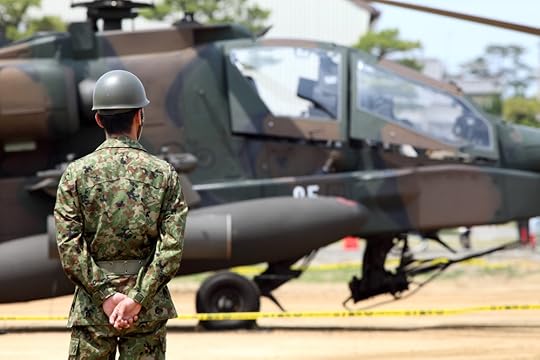 Asia PacificJapanChinaShinzo AbeSouth China SeaSelf Defense Force
Asia PacificJapanChinaShinzo AbeSouth China SeaSelf Defense Force
July 7, 2015
Obama Breaks Protocol, Slights Top Chinese General
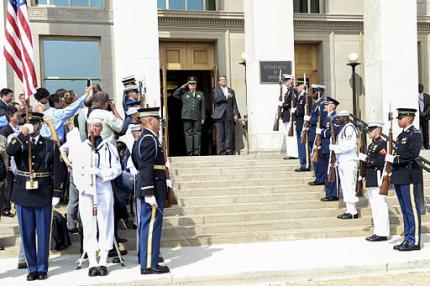
Contrary to Beijing’s expectation, President Obama declined a Pentagon request to receive Chinese General Fan Changlong, vice chairman of the Communist Party’s Central Military Commission, while he was in Washington during his five-day visit in June. Fan, described by the South China Morning Post as “a military heavyweight and one of President Xi Jinping’s most trusted right-hand men,” is the first CMC vice chair in at least two decades—perhaps the first ever, as some report—not to meet with a sitting American leader during an official visit to Washington.
It appears Fan was slighted at the Pentagon as well. The general did not get the usual 19-gun salute at his welcoming ceremony, nor was it particularly well attended by senior American officers. In the end, the delegation was denied the DC pomp and ceremony and those prized White House photo ops that authoritarian regimes crave to show their legitimacy to audiences back home.
Some have attempted to explain these apparent diplomatic snubs by saying Beijing tried to keep Fan’s visit low-key. That, however, seems unlikely. Fan brought with him the largest contingent of People’s Liberation Army officers seen in Washington in recent years. And he broke precedent by bringing along the senior leadership of the PLA’s General Political Department, suggesting the Chinese did not intend the visit to fly under the radar.
Some say Fan received a cool welcome in Washington because ostentatious ceremony would have been embarrassing for the administration, especially after China’s rampant island-building in the South China Sea and the devastating cyber thefts from the Office of Personnel Management, widely blamed on Beijing.
In any event, a public presidential meeting with Fan would have given the press an opportunity to raise questions on the administration’s response to China’s provocative moves, and perhaps the president was not ready to answer questions of that sort.
If so, Obama cannot avoid the issues for long. Xi Jinping is scheduled to arrive in Washington in September. That trip is described as an official state visit. Presumably, Xi expects a South Lawn ceremony, complete with a 21-gun salute and formal dinner in the East Room.
Xi also serves as chairman of the Central Military Commission, and he has presided during a time of obvious Chinese assertion across a wide arc, from continual incursions into Indian-controlled territory in Ladakh in the south to violations of Japan’s territorial sovereignty around the Senkaku Islands in the north. Fan’s delegation inked an agreement during the general’s visit on army-to-army dialogue, but there is no evidence of forward movement on big strategic issues during his Washington trip. And his visit came on the heels of the generally unproductive seventh session of the US-China Strategic and Economic Dialogue, which wrapped up in Washington last week.
So Obama will have to confront troublesome disagreements with Beijing in September during the Chinese leader’s visit. After all, there is no possibility of avoiding Xi then.
OG Image: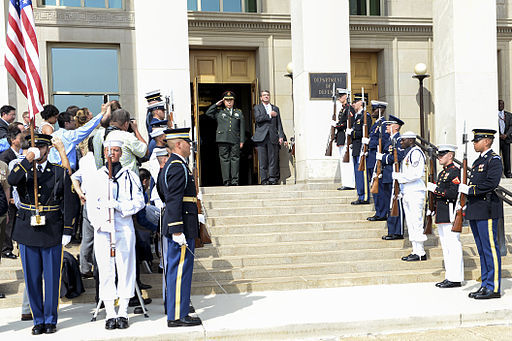 North AmericaUSChinaBarack ObamaObama
North AmericaUSChinaBarack ObamaObama
June 25, 2015
Fiasco for China’s Allies in Hong Kong
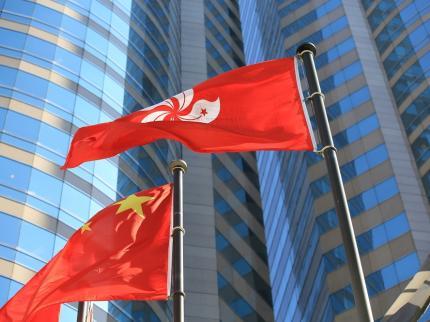
On Tuesday, Hong Kong’s wealthiest businessman, Li Ka-shing, said he was “very disappointed” over the Hong Kong government’s failure to enact its reform package for the 2017 election of the chief executive, the city’s top political official. When asked who was responsible for what is now widely called a fiasco, Li ducked the question. “Everyone in Hong Kong is discussing this,” he said.
He’s right. Just about everybody in Hong Kong is talking about the events that unfolded last Thursday in Legco, as the city’s Legislative Council is known. The legislators, after a 20-month drama, finally voted on China’s proposal to “reform” the procedures for the election of the chief executive.
Last August, the National People’s Congress in Beijing issued its proposed procedures for the chief executive contest. China’s rubber-stamp legislature agreed to universal suffrage but insisted on nominating procedures so restrictive that only Beijing’s hand-picked candidates could compete in the election. The Hong Kong government then submitted Beijing’s plan to Legco.
Everyone was taken by surprise by what happened on the floor of the Hong Kong legislature at the end of last week. The pro-Beijing legislator Jeffrey Lam Kin-fung, within one minute of the scheduled vote on the government’s proposal, asked for a 15-minute delay to allow rural strongman Lau Wong-fat to make it to the chamber to cast his ballot. Legco President Jasper Tsang Yok-sing, also a “pro-establishment” or “pro-Beijing” politician, denied the procedural request.
With less than 30 seconds to the vote, Beijing’s camp decided to break the quorum. Lam and 30 others, therefore, walked out of the chamber, but in the confusion nine of his bloc stayed behind. The “pan-democratic” legislators also remained, and with the nine others constituted a quorum. A vote was taken, and the final tally on the government’s package was eight in favor and 28 against.
In a technical sense, the failed walkout did not matter. The government’s proposal was never going to get the necessary two-thirds majority because the democrats had just enough votes to block what they rightly called “fake” or “North Korean–style” democracy.
Yet in a political sense, the incident has ramifications that will certainly be felt for years. Beijing’s strategy all along was to blame the democrats for preventing passage of the reform package and then defeat them at the polls, taking away their “critical minority” in Legco. Now, China cannot hold them responsible, at least credibly, because its own allies were not on the floor to vote. And due to the stunning development, it is the pro-establishment forces that might lose seats in upcoming contests.
Since the debacle, two pro-Beijing figures—Lam, widely blamed for the failed walkout, and the divisive Regina Ip Suk-yee, chairwoman of the New People’s Party and prospective candidate for chief executive—have actually cried in public. The establishment forces are in disarray, and Beijing has been described as “angry.”
Yet the fallout could be even more significant if China moves to Plan B. “The pro-establishment elites come from different interest groups and are disunited,” said Lau Siu-kai, former head of the Hong Kong government’s think tank, the Central Policy Unit, on Saturday. “I am afraid the only force that can coordinate them is not from Hong Kong but from the central government.”
Lau, who publicly called the pro-Beijing forces “incompetent,” suggested there would be the loss of even more autonomy in the city that the People’s Republic absorbed in 1997. “The principle of ‘Hong Kong people ruling Hong Kong’ will be compromised,” the Beijing-connected figure noted in comments to the South China Morning Post.
A sure recipe for more political turbulence is direct rule—or the appearance of such—from Beijing. Already, people in Hong Kong are beginning to talk about independence from China, and a growing segment of the population does not see itself as “Chinese.” As a result of the new self-identity, democracy in China is no longer of importance to “localists,” who believe the focus of their struggle should be their home, Hong Kong.
And developments are already turning ugly. The Hong Kong government in the middle of this month arrested ten people for planning to detonate explosives. Those charged are alleged to have ties with radical political groups, but many suspect the arrests are part of a Beijing-inspired plot to discredit the democracy movement.
China just suffered a setback in Hong Kong last week, and Chinese officials, by ruling the city more tightly, are about to make matters worse for the people of Hong Kong—and for themselves.
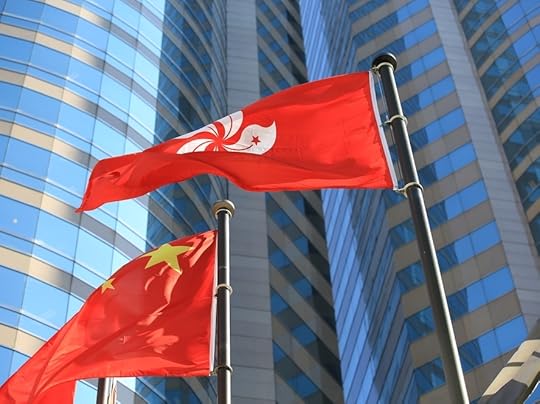 Asia PacificChinaHong KongChina-Hong Kong relationsEconomy
Asia PacificChinaHong KongChina-Hong Kong relationsEconomy
June 16, 2015
Xi's Purge: Anticorruption or Loyalty-Based? Is It Finished Yet?
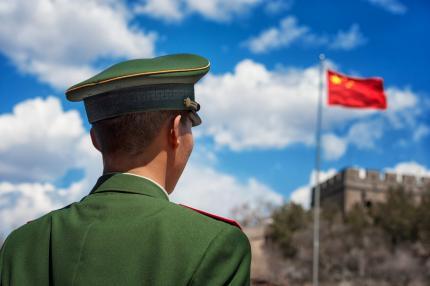
Thursday, Beijing disclosed the trial, plea, and sentencing of Zhou Yongkang, once the country’s security czar and now the highest official to be prosecuted since Maoist times.
The reviled Zhou received a life term for taking bribes, disclosing state secrets, and abusing power. He was also deprived of political rights for life and forfeited assets.
Zhou, according to state media, admitted his crimes and will not appeal. “The basic facts are clear,” he said according to the official Xinhua News Agency. “I plead guilty and repent my wrongdoing.”
“Zhou’s trial was a symbol of the CPC’s commitment to the rule of law,” Xinhua reported.
No one should believe Xinhua on the Communist Party’s commitment. “Zhou’s trial was about loyalty to Xi and control,” Nottingham University’s Steve Tsang told the Financial Times, referring to Chinese leader Xi Jinping. “Justice has got nothing to do with it. Justice is incidental.”
Many now believe that, with Zhou’s sentencing, Xi’s “anticorruption” campaign will enter a new phase, focusing more on institutional restraints on graft instead of taking down more “tigers,” high officials in Communist Party parlance. “The task has changed,” said the party’s Central Commission for Discipline Inspection in a statement on its website. Prominent corrupt officials are mere “gusts of wind.”
Many have reported that the biggest tigers, former leaders Jiang Zemin and Hu Jintao, have reined in Xi’s once-relentless campaign. For instance, Deng Yuwen, a former editor of Study Times, the Central Party School journal, believes Xi reached a deal on Zhou Yongkang with Jiang Zemin, Hu Jintao, former Vice President Zeng Qinghong, and former premiers Li Peng and Wen Jiabao to not go after them or their children. “Many people want to know if other ‘big tigers’ or ‘old tigers’ will be ensnared,” Deng wrote in July in Ta Kung Pao, a Chinese-language Hong Kong newspaper. “The possibility of this happening in the rest of the first five-year term is close to zero.”
It would make sense for Xi to back off, especially because his efforts could tear the country’s ruling organization apart. On a general level, Xi is “deconstructing” the webs of relationships that keep the party in power, explains Lynette Ong, a political scientist at the University of Toronto. “In an authoritarian system like China’s, the system’s foundational stability comes not from popularly elected officials but from patronage networks,” Ong writes. “Autocrats garner support by promising to share spoils with their followers, a practice that holds the political insiders together. Undermining this system is thus highly disruptive to the party’s grip on power.”
Moreover, Xi is forcing his opponents to fight back hard to protect themselves, their patronage networks, and their families. So far, he has managed with his bold tactics to unite his opponents, a dangerous situation for him, and so it would appear that this would be a particularly appropriate time for Xi to beat a retreat.
Nonetheless, Deng Yuwen’s prediction that Xi’s purge was coming to an end looks wrong. It now appears that former Vice President Zeng, who was allied with Jiang and was reportedly instrumental in Xi’s rise to power, is under investigation. Zeng, by many accounts, arranged Xi’s ascent in November 2012. Xi, in short, could be turning on his former backers, something his hero, Mao Zedong, often did before the tumultuous decade-long Cultural Revolution.
Reports indicate Zeng is being held in Tianjin, the seaport adjacent to Beijing. Tianjin is also home to the people’s court that conducted the secret trial of Zhou Yongkang.
So prepare for another gust in China, perhaps soon.
OG Image: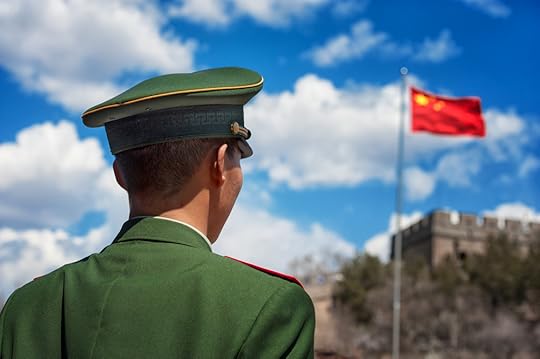 Asia PacificChinaZhou YongkangXi JinpingMao ZedongCorruptionAnti-corruption
Asia PacificChinaZhou YongkangXi JinpingMao ZedongCorruptionAnti-corruption
June 9, 2015
China and US Cyber Security
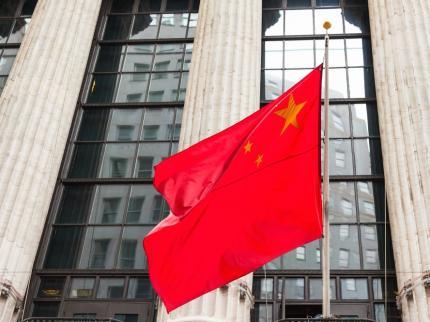
From December through April, hackers exfiltrated personal data on almost 4.2 million US federal employees and contractors.
The attacks, on the network of the Office of Personnel Management, appear to be an attempt, as the Washington Post reported, to build a database on Americans, especially those in sensitive positions. This conclusion looks correct: the same party that carried out the OPM hacks may be behind attacks last year on the health insurers Anthem and Premera Blue Cross.
The Post quotes US government officials, speaking anonymously, blaming the Chinese. Rich Barger of ThreatConnect, a Virginia-based cyber security firm, believes the culprit is China’s Ministry of State Security.
Not everyone agrees—Robert Knake of the Council on Foreign Relations, for instance, doubts China’s involvement—but other state actors do not appear to have the ability to process the volume of data taken, and the data from the OPM, Anthem, and Premera attacks have not shown up on black markets, so run-of-the-mill criminals are probably not responsible. For the moment at least, the perpetrator looks to be the Chinese government or military.
China’s probable involvement vexes Washington. The indictment of five Chinese military officers last May for cyber theft was the Obama administration’s way of warning Beijing. The hope was that the Chinese would get the message that American capabilities were so good that we could trace individual attacks to specific terminals and individuals, but Beijing’s leaders decided to ignore the implied warning.
Then Beijing turned down American attempts to work out boundaries on spying. Last October, for instance, Secretary of State John Kerry hosted his Chinese counterpart, State Councilor Yang Jiechi, at his home in Boston, but during that meeting a defiant Yang told Kerry that his government would not resume cyber talks with Washington because of “mistaken US practices.”
The Obama administration has, despite everything, not given up on a cooperative solution. “There is no reason that it has to devolve into conflict if the dialogue can continue and the relationship can be improved,” said State Department spokesman John Kirby last week.
With the annual US-China Strategic and Economic Dialogue session set in Washington later this month and a state visit by Chinese President Xi Jinping coming up in September, there are plenty of opportunities for the Obama administration to send a message. The questions is whether it will be the right one.
Xi’s government has asked for an invitation to address a joint session of Congress, which would be the first by the head of a Communist state. This will probably not happen, but Xi will still get full honors on the South Lawn of the White House. In view of Beijing’s recent broad-based attack on international norms—widespread spying, significant interference on freedom of navigation in the South China Sea, increasingly predatory attacks on foreign business—such public shows of respect will probably only feed China’s inflated sense of self-importance.
Instead, the administration should be imposing costs on China. It’s not possible to put a price on national security, which was compromised by the attack on the Office of Personnel Management and, in all probability, other agencies. We can, however, price attacks on US companies.
The Blair-Huntsman Commission, which issued its report in May 2013 on the theft of intellectual property, estimated that the annual revenue lost by our businesses is about equal to US exports to Asia. If that relationship still holds, America’s loss was around $480 billion last year. Most of the theft was probably committed by China, which could be responsible for as much as 90 percent of our country’s loss by cyber means.
Any imposition of sanctions on China—the Blair-Huntsman Commission recommended tariffs on Chinese goods as a last-ditch effort—will hurt everyone concerned, but we are long past the point where substantive measures will be cost-free.
Yet there is one act that will be symbolic, effective, and without damage to the US: refusing to honor the head of a one-party state that each day, over the phone lines and through satellite relays, attacks American computer networks with obviously malign intentions. Under the circumstances, it is the least we can do.
OG Image: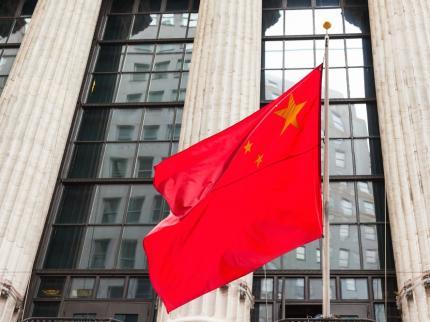 Asia PacificChinaUS
Asia PacificChinaUS
June 3, 2015
South Korea Plays China Against America
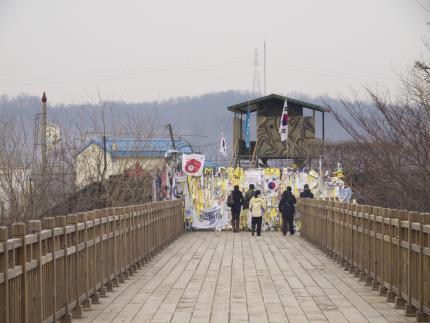
Uriminzokkiri, the state-controlled North Korean website, recently criticized South Korean President Park Geun-hye for planning to go to Washington in the middle of this month instead of commemorating the 15th anniversary of the inter-Korean summit, which falls on June 15th. Park is scheduled to meet President Obama on June 16th.
“Why does she plan to visit the US, the prime enemy that divided the two Koreas?” Uriminzokkiri asked. “This shows the repetition of Park’s bad habit for making overseas escape.”
There was never much possibility of a joint celebration of the now-maligned summit in 2000, but North Korean propagandists are correct to point out that Park has traveled abroad to great powers. And as she does so, she is controversially changing Seoul’s outlook toward the world.
At one time, South Korea was tightly anchored to the US, the guarantor of its security, but those bonds weakened starting in the late 1990s during the administrations of two “progressives,” Kim Dae Jung and his successor, Roh Moo-hyun. Roh’s successor, Lee Myung-bak, then rebalanced South Korean foreign policy toward Washington after taking office in 2008.
Park, who was the more conservative of the main candidates in the 2012 presidential campaign, is seeking a middle path. This became clear at the end of March, when her foreign minister, Yun Byung-se, spoke to diplomats in a public setting at the Ministry of Foreign Affairs. “The current situation in which we are getting ‘love calls’ from both the United States and China because of our strategic value should not be considered a headache or dilemma,” he said. “Rather, it is a blessing.”
His controversial remarks echoed those of President Roh, who believed his country should play a “balancing role,” switching sides on an issue-by-issue basis between the “northern alliance” of China, Russia, and North Korea and the “southern alliance” of the US and Japan. “The power equation in Northeast Asia will change depending on the choices we make,” he said in 2005.
Ten years later, Roh’s cocky approach has powerful adherents in Seoul, even if today’s supporters are somewhat more cautious in their phrasing. As Yun sees it, South Korea, with a policy now known as “strategic ambiguity,” can benefit from playing China and the US against each other, with each great power, in the words of analyst Sukjoon Yoon, “ambiguously accommodated.”
Yoon, a former South Korean naval officer and now at the Korea Institute for Maritime Strategy, sees great potential in the foreign minister’s approach. “He believes that Seoul’s strategic cooperative partnership with Beijing is strong enough to withstand disturbances arising from Seoul’s attempts to nurture its security relationship with Washington, so that a dangerous crisis is unlikely,” writes Yoon. “He also assumes that South Korea can and must remain on good terms with both great powers; it should pursue South Korea’s own interests, and scrupulously refrain from any partisan alignment.”
That sounds like a workable plan, especially because Washington, which by treaty is obligated to defend South Korea, has generally accommodated the “balancing act” played by past governments in Seoul. Yet this benign period may not last. China’s increasingly belligerent territorial claims in the South China Sea have inevitably pressured countries in East Asia to seek closer political and military ties with the US.
Likewise, Beijing’s claim on Ieodo, a submerged rock in the East China Sea, is viewed by Seoul as an infringement on South Korea’s sovereignty. And the increasing presence of Chinese fishing fleets in South Korean waters, along with Beijing’s support for Pyongyang, which has never abandoned its effort to absorb the South, represents growing tension that will make Seoul’s balancing act increasingly difficult.
Park could find out how difficult in the next few weeks because the first real test of Foreign Minister Yun’s approach comes when she arrives in the American capital. Her initial visit as South Korea’s leader, in May 2013, was considered a great success by Washington. This time, however, there could be tough questions for her from American policymakers also hard-pressed by provocative Chinese actions.
OG Image: Asia PacificKoreaChinaSouth KoreaUSPark Geun-hye
Asia PacificKoreaChinaSouth KoreaUSPark Geun-hye
May 28, 2015
Gloria Steinem, Nobel Laureates Attempt to Cross the DMZ
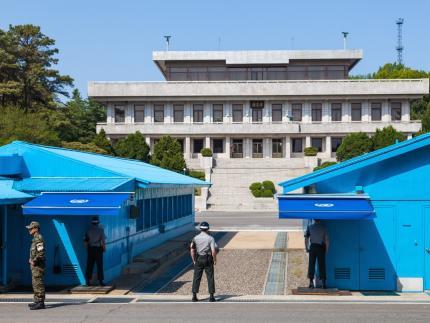
On Sunday, Gloria Steinem, two Nobel Peace laureates, and 27 other women crossed the Demilitarized Zone from North Korea into South Korea in an attempt to bring peace to the long-divided and troubled peninsula.
“We have received an enormous amount of support,” said Steinem, the 81-year-old women’s rights activist, on her arrival in the South. It is also true that she and her group, WomenCrossDMZ, also faced a chorus of sharp criticisms.
Much of the criticism centered on Steinem and the others not confronting the North Korean leadership over the horrific plight of women in that miserable state. Yet the group’s activities—both in Pyongyang, where they congregated before the crossing, and during the crossing itself—raised other issues. Among them is the most difficult Korea question faced by countries and international organizations, whether to isolate or engage the regime led by the Kim family.
The international community’s punishment of the North Korean state, in fact, was one of the matters that most interested Steinem. “The example of the isolation of the Soviet Union or other examples of isolation haven’t worked very well in my experience,” she told the Associated Press before heading to the DMZ. “Isolating North Korea clearly hasn’t worked.”
She’s right, of course. The US, after the 1953 armistice in the Korean War, has deterred three generations of Kim leaders from launching another large-scale invasion against the South, but apart from this achievement no American policy has worked to positively influence Pyongyang. Even the North’s longtime allies, Moscow and Beijing, have generally failed in this regard. “No one has found a way to persuade North Korea to move in sensible directions,” Stapleton Roy, the former American diplomat, told me in 2004, and there has been no appreciable success since then.
Steinem, unintentionally, highlighted the utter lack of progress. Her group wanted to walk across the four-kilometer-wide DMZ and enter South Korea at the village of Panmunjom, site of the signing of the 1953 truce, but were prevented from doing so because that activity would have been a violation of the armistice. Instead, the 30 “citizen diplomats” were bused across the zone at another crossing point, and they walked only after clearing the last South Korean checkpoint.
That checkpoint was at Paju, the southern end of the western land crossing. The Paju crossing is the one used by South Koreans to go to the Kaesong industrial zone, just north of the DMZ, where about 120 South Korean businesses employ about 53,000 North Korean workers. Kaesong, launched in 2004, is often held out as an example of the success of Seoul’s attempts to work with Pyongyang.
Ban Ki-moon would have used the Paju crossing to go to Kaesong last week. On Wednesday, the 20th, the North Koreans informed the UN secretary general that they had withdrawn permission for him to tour the industrial zone there, an event scheduled for the following day. “No explanation was given for this last-minute change,” Ban said. “This decision by Pyongyang is deeply regrettable.”
Steinem may be right that isolating North Korea is a bad idea, but as she should have known from the abrupt cancellation of Ban Ki-moon’s planned visit, it is North Korea that is isolating itself.
OG Image: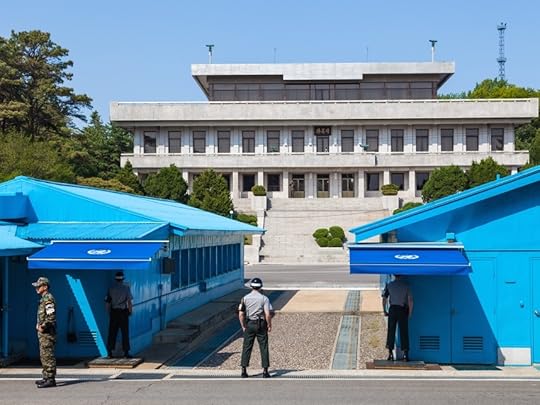 Asia PacificNorth America
Asia PacificNorth America
Gordon G. Chang's Blog
- Gordon G. Chang's profile
- 52 followers



